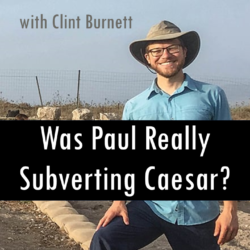This is part 6 of a series of posts called, “Identifying and Subverting Cultural Narratives.”
Consumerism capitalizes on the thrill of buying something new even when you don’t need it. In order to keep people buying, advertisers craft penetrating messages to inspire dissatisfaction or fear that buying their product or service can assuage. Consumers must purchase more stuff in order to feel happier, safer, and more successful. Consumerism is a powerful attitude that not only fuel’s our American economy, bombarding us with ads, but also adjusts our value system, making us think newer is better, more is better, and that shopping will help us get what we want out of life.
Cultural Example 1: Seinfeld on Ratchet Sets and Beautiful Women
In this short clip, we see Jerry Seinfeld explaining how an ad can suspend the consumer’s rationality such that he feels compelled to purchase a product on a false premise.
Cultural Example 2: Wayne’s World Product Placement Parody
Here Wayne and Garth from Wayne’s World make fun of how obvious and absurd product placement in movies has become.
Benefits of Consumerism
Although consumerism has many detriments, we must admit that it has driven our society to unprecedented levels of economic prosperity. Products are remarkably inexpensive and accessible. How an average American lives today is probably better than most nobility of history, with access to hot and cold running water, climate controlled heat and air conditioning, instant communication, a wardrobe of dozens of garments, an incredible variety of foods, and swift private transportation. Furthermore, the variety of products available has encouraged greater and more differentiated self-expression. Instead of everyone buying the same shirt, each individual chooses which shirt to buy as a reflection of his or her own unique sense of style. In a non-hierarchical society (excepting celebrities), consumerism enables average people to distinguish themselves based on the quality and conspicuousness of the goods and services they purchase. Besides all of this, consumerism is thrilling, whether the purchase of something new and shiny or the gratification that accompanies finding a good deal.
Detriments of Consumerism
Consumerism has several significant detriments as well. Disposable products combined with planned obsolescence generate a tremendous amount of waste. Secondly, consumerism can lead to debt. For example, each time a new Apple product comes on the market a group of super fans lines up to purchase it using credit cards, even if their old product met their needs. Going into debt restricts freedom and also results in paying more than the original cost. The primary driving force behind consumerism is advertising, which is itself intrusive and annoying. Just think of how billboards infect the landscape or how commercials interrupt our TV shows. Advertising often attempts to manipulate you by inspiring discontentment and fear or it makes false promises (i.e. buy this convertible and bikini clad women will like you). Consumerism fuels selfishness while diminishing compassion and generosity toward others. Lastly, an economy based on consuming tends to exploit resource rich countries while benefiting only the wealthy in an unsustainable spiral of greed and waste.
Deconstructing Consumerism
Consumerism functions on sleight of hand, trading the “good life” for the “goods life.” Acquiring more or better stuff simply does not make us happier over time. Sure, in the moment we experience the thrill of getting something new or finding a good deal, but once this shopper’s high wears off, we have another thing that seems mundane or even dissatisfying. In his Ted talk, Tim Jackson pointed out the absurdity of consumerism when he said the point is “to spend money we don’t have on things we don’t need to create impressions that won’t last on people we don’t care about.”[1] Jackson went on to describe a social experiment he conducted with students in Canada and Uganda. He wanted to determine if giving someone money and telling them to spend it on themselves would make them happier than having them spend it on others. Over and over he found that people were happier when they spent it on others instead of themselves. In this way Jackson proved Jesus’ statement, “It is more blessed to give than to receive” (Acts 20.35).
Other than failing to deliver what it promises, consumerism can leech into our relationships, resulting in dehumanization. For example, a telemarketer calls to sell their product. Rather than treating their prospect like a genuine person, they launch into a canned pitch. Then, because of this abrupt and disingenuous behavior, the consumer dehumanizes the telemarketer by hanging up on him or telling him off. Consider this example from the TV show Seinfeld:
(The phone rings. Jerry answers.)
Jerry: “Hello”
Telemarketer: “Hi. Would you be interested in switching over to TMI long distance service?”
Jerry: “Oh gee, I can’t talk right now. Why don’t you give me your home number and I’ll call you later?”
Telemarketer: “Uh. I’m sorry. We are not allowed to do that.”
Jerry: “Oh, I guess you don’t want people calling you at home.”
Telemarketer: (pause) “No.”
Jerry: “Well, now you know how I feel.” (hangs up the phone.)
Although this is a silly example it gets at how dehumanizing consumerism can be to both retailers and consumers. This is not to say that buying and selling are inherently problematic, but it does mean that the consumer relationship can easily result in objectifying people, which, in turn, can open the door to unjustified rudeness, depression, and conflict.
Furthermore, bringing the consumer mindset into marriage or parenting can lead to intense relational pain and disappointment. Tim Keller explains:
Sociologists argue that in contemporary Western society the marketplace has become so dominant that the consumer model increasingly characterizes most relationships that historically were covenantal, including marriage. Today we stay connected to people only as long as they are meeting our particular needs at an acceptable cost to us. When we cease to make a profit—that is, when the relationship appears to require more love and affirmation from us than we are getting back—then we “cut our losses” and drop the relationship. This has also been called “commodification,” a process by which social relationships are reduced to economic exchange relationships, and so the very idea of “covenant” is disappearing in our culture. Covenant is therefore a concept that is increasingly foreign to us, and yet the bible says it is the essence of marriage…[2]
Now we turn to see the Christian perspective on consumerism.
A Christian Perspective
Right from the Ten Commandments, God tells his people not to covet their neighbor’s houses, wives, servants, or other possessions (Ex 20.17). Ironically, corporations spend billions of dollars in advertising to inspire covetousness in potential consumers. Their aim is to make you feel dissatisfied with what you have (or don’t have), creating a strong enough desire to have what they are selling that you end up buying it. However, God stops this before it can even get going by simply forbidding the attitude from the start. He says, “Don’t covet.” Period. Even so, this is not all that scripture has to teach us on this important subject. For example, Jesus told a parable to warn his hearers about the danger of getting confused about what gives value to their lives.
Luke 12.15-21
15 And he said to them, “Take care, and be on your guard against all covetousness, for one’s life does not consist in the abundance of his possessions.” 16 And he told them a parable, saying, “The land of a rich man produced plentifully, 17 and he thought to himself, ‘What shall I do, for I have nowhere to store my crops?’ 18 And he said, ‘I will do this: I will tear down my barns and build larger ones, and there I will store all my grain and my goods. 19 And I will say to my soul, “Soul, you have ample goods laid up for many years; relax, eat, drink, be merry.”’ 20 But God said to him, ‘Fool! This night your soul is required of you, and the things you have prepared, whose will they be?’ 21 So is the one who lays up treasure for himself and is not rich toward God.”
Whether we have much or little, our lives do not consist in the abundance of our possessions. Jesus doesn’t say we should have no possessions, but he is saying that laying up treasures for ourselves on earth is foolhardy so long as we are not rich toward God. In other words, we need to find our value in what God says about us and lay up treasures for ourselves in heaven by doing what God says is right (Mat 6.19-20).
In a similar way, Paul identifies the absurdity of living for possessions:
1 Timothy 6.6-11
6 But godliness with contentment is great gain, 7 for we brought nothing into the world, and we cannot take anything out of the world. 8 But if we have food and clothing, with these we will be content. 9 But those who desire to be rich fall into temptation, into a snare, into many senseless and harmful desires that plunge people into ruin and destruction. 10 For the love of money is a root of all kinds of evils. It is through this craving that some have wandered away from the faith and pierced themselves with many pangs. 11 But as for you, O man of God, flee these things. Pursue righteousness, godliness, faith, love, steadfastness, gentleness.
I love where Paul sets the bar. He says that our standard for contentment should be food and clothing. Just imagine how that would liberate us from the anxiety, debt, and disappointment that inevitably arise from giving into consumerism. If we limited our necessities to just food and clothing that would mean we could think of all our other possessions as bonuses. Rather than worrying about how to get rich or give in to money’s seductive allure, we should seek after righteousness, godliness, faith, love, steadfastness, and gentleness. It takes effort to “keep your life free from love of money” and to “be content with what you have,” but if we take refuge in the fact that God promises, “I will never leave you nor forsake you” then we will enjoy better and more satisfying lives (Heb 13.5). Ultimately when God becomes the strength of your heart and your portion forever, you become free from the stranglehold of worshiping stuff (Ps 73.26).
Have you ever noticed how the bible twice calls covetousness idolatry? In fact, if we don’t put the covetousness within us to death, it will keep us from inheriting the kingdom of God (Col 3.5; Eph 5.5). Instead of loving the desires of the flesh, the desires of the eyes, and the pride of possessions, we need to love God and people (1 John 2.15-17). If we aren’t on guard against our tendencies towards greed, then slowly it will crowd God out of our lives. We can’t orient our entire lives around the accumulation of possessions if we hope to stay true to God. However, we are not left without help. The double-edged sword that slices through greed is gratitude and generosity. Practicing contentment diffuses the manipulating power of advertising that we face on a daily (sometimes hourly) basis. By giving to the work of God or the needy, we break out of the straitjacket of avarice. Seeing through the fear-based thinking of never having enough and the absurd pressure to keep up with the Joneses (or the Kardashians), we can prioritize what’s really important: loving God and people rather than stuff.
[1] http://www.ted.com/talks/tim_jackson_s_economic_reality_check?language=en#
[2] Tim Keller, The Meaning of Marriage (New York: Riverhead Books, 2011), pp. 84-5.







